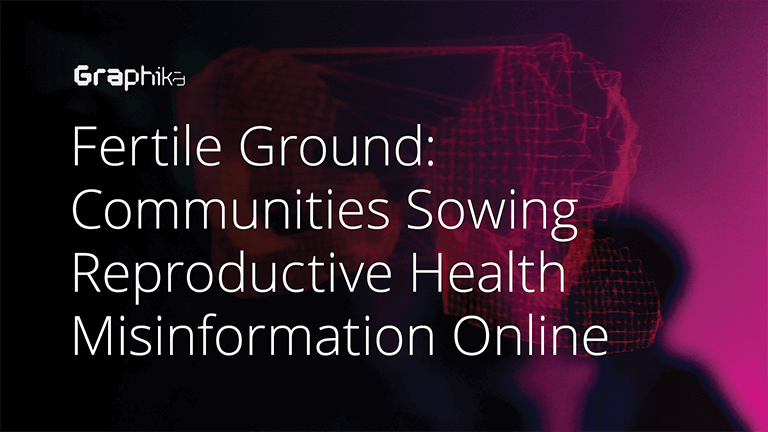Experts have repeatedly highlighted the dangers of online misinformation about abortion and reproductive health issues. Graphika’s monitoring of the online landscape around this topic has identified multiple false and misleading narratives, as well as a range of actors engaged in amplifying them under a variety of incentive structures. Some groups advocate on singular issues, particularly abortion, while others create a sense of community around deep-seated distrust of Western medical institutions. A number of users also appear to be financially motivated, seeking to profit from those searching for information about reproductive health concerns.
This blog post examines three of the most prominent groups we have identified seeding and spreading false or misleading information about reproductive health issues online. For each group, we aim to detail their community characteristics, structure, and associated behaviors.
Anti-Abortion Ideologues
To better understand one aspect of reproductive health misinformation online and who its key amplifiers are, we created a Twitter-based network map of anti-abortion amplifiers and their audiences. The network was seeded on followers of known anti-abortion actors such as the Susan B. Anthony List - which calls itself “the political arm of the pro-life movement” - and the Progressive Anti-Abortion Uprising, an activist group best known for stealing fetal remains from a medical waste company.
The resulting map shows a densely interconnected network comprised predominantly of conservative and Christian users. US Trump Support and Far-Right (upper right), US Conservative Journalists, Media, and Politicians (lower right), and US and Canadian Conservative Supporters (center right) together comprise just over 50% of the map. Faith-based anti-abortion groups identified in this network include US Christian Conservatives (center left), International Christian Conservatives (upper left), US and International Catholic Leaders and Supporters (upper left), and International Spanish-Language Activists, Catholic Outlets and Conservative Writers (lower left). Faith-based communities tend to be the densest within the network, excepting International Christian Conservatives, which act as a bridge between the conservative and Christian clusters.
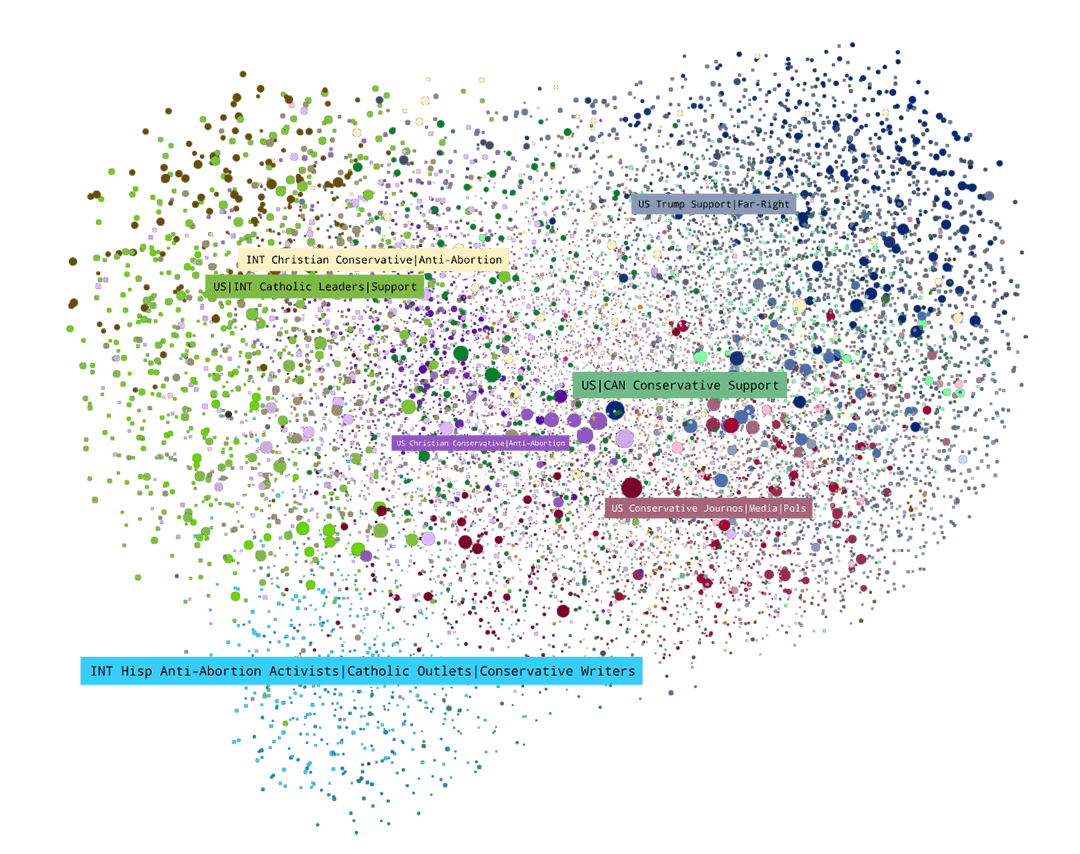
Anti-abortion creators frequently employ three tactics online: creating and disseminating misinformation about the safety, necessity, or methods of abortion procedures; facilitating or praising the harassment of abortion providers, advocates, and seekers; and presenting anecdotal stories as general facts. Often, the most harmful behavior – particularly real-world harassment or other reportedly illegal activities – is carried out by lower-influence, localized members of this network. Creators with larger followings may then amplify their stories, praising their actions as a defense of unborn children. This in turn encourages similar actions by other lower-tier groups.
Graphika’s mapping of the anti-abortion community on Twitter revealed that conservative Christian organizations and individuals have significant influence over the anti-abortion conversation. Present on all major platforms, their tactics range from posing as pregnancy health clinics to disseminating misleading claims that abortions increase cancer risk or that the effects of abortion pills can be reversed. The table below illustrates the concentrated use of the hashtag #abortion within Christian communities in the network. Graphika uses focus scores to measure the unique attention communities give a hashtag or other object, computed relative to the entire network. A focus score of two or greater indicates statistically significant, high focus. Three of the four Christian segments in our map score greater than two for #abortion.

While faith-based anti-abortion accounts are active on Twitter, some of the most influential voices in the movement are more prominent on platforms such as YouTube and Instagram. For example, Vision Video, a Christian content production company that offers a full-length documentary on the supposed link between abortion and breast cancer, operates a YouTube channel with over 890,000 subscribers. Its Twitter following is 332.
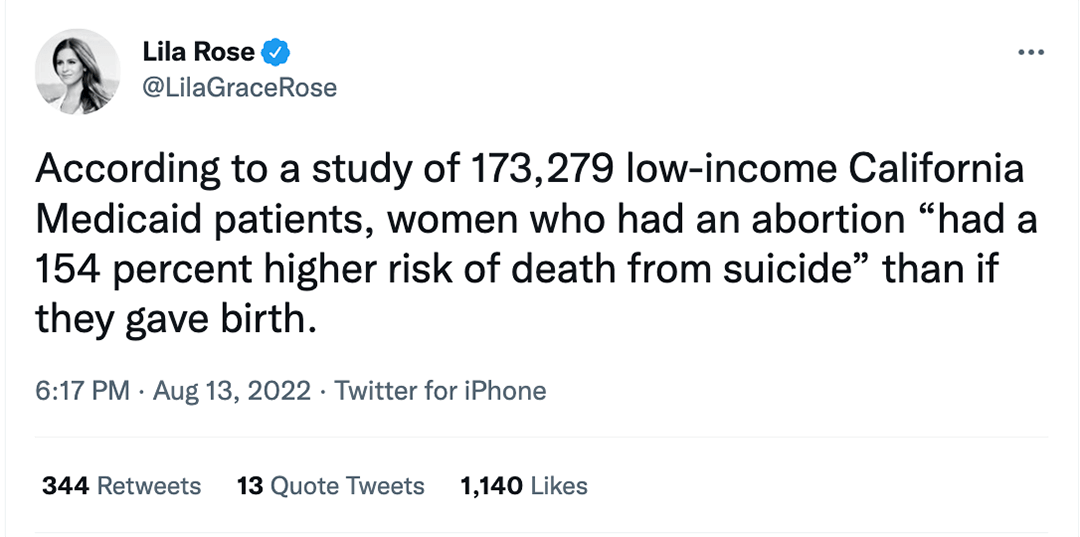
Beyond abortion, faith-based actors are also active in the larger reproductive health space, including advocating against many forms of birth control as unacceptable and claiming to have been cured of sexually transmitted infections through faith. These narratives often rely on personal anecdotes that are presented as conclusive evidence.
Freebirthers
Reproductive health misinformation stretches beyond pregnancy and into birth, including the outright rejection of modern medical advice surrounding childbirth. Those skeptical of modern Western medical practices occupy a much different corner of the internet than anti-abortion activists. Prominent examples of such establishment skeptics include so-called freebirthers and their “radical birthkeepers.” In addition to eschewing established medical practice surrounding pregnancy and birth, freebirthers reject interventions even by midwives and doulas. Instead, they advocate that because birth is a natural process, the pregnant person should not require input or intervention from any outside source and should instead complete the birth without professionals present. The most popular disseminator of this dangerous practice is the Free Birth Society, which claims to be able to instruct women how to prevent childbirth complications while also teaching its birthkeepers how to “build a thriving business” around childbirth.
Our analysis found that these communities often operate in closed-off groups both on and off mainstream platforms that isolate their members and further insulate them from trusted medical advice. Meanwhile, popular creators such as Yolande Norris-Clark and Emilee Saldaya curate public-facing personas that present freebirthing as empowering and co-opt language linking it to unspecified traditional practices. This public content often serves to funnel viewers into their private communities. Creators within this community present an aesthetically polished version of the birthing process, ignoring the serious risks it poses for those who might have unexpected complications during childbirth. These actors, and the social media presence they curate, tap into very real feelings of frustration and fear from people who feel unheard by their medical providers. Their content also often appeals directly to those already operating in spaces outside of hospitalized medicine, such as doulas and “crunchy” women.
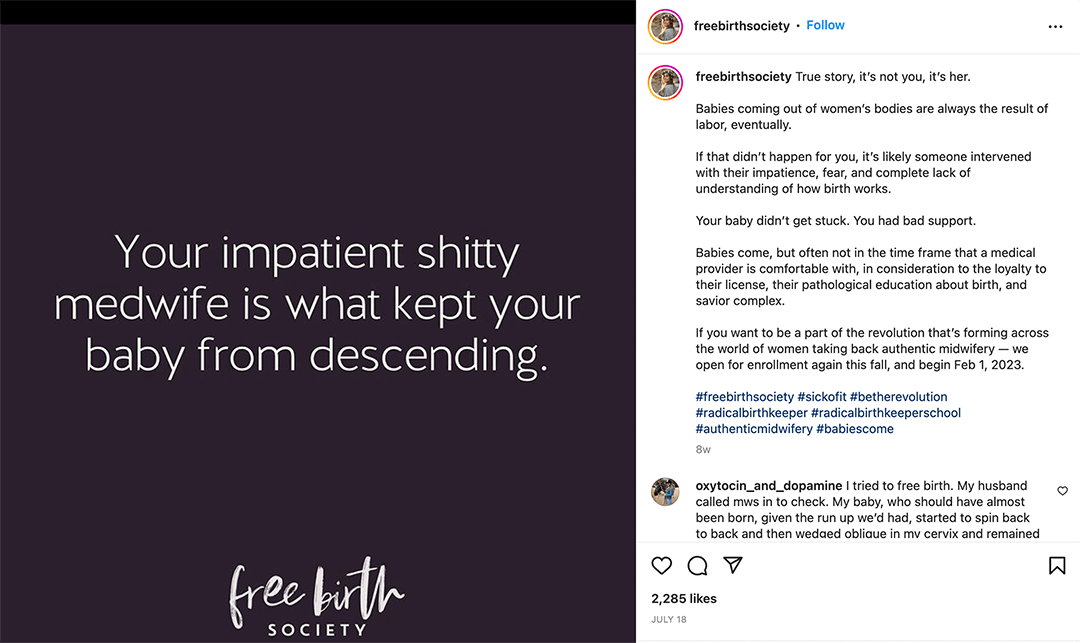
Grifters
Actors seeking to profit from reproductive health misinformation aim to exploit expectant parents’ desires to raise a healthy baby. Some do so by pushing procedures not supported by medical experts, such as cord blood banking, an expensive process that extracts and stores a baby’s stem cells indefinitely, which proponents claim can be used in a future medical emergency.
More dangerous than profit-seekers pushing unnecessary but generally safe procedures, however, are those that co-opt establishment skeptic narratives to market unregulated and often untested substances with the potential to cause harm. Medical professionals are already reporting an uptick in content pushing these so-called “natural remedies” in the wake of the U.S. Supreme Court’s June decision to overturn Roe v. Wade. Blue cohosh, for example, is commonly marketed as a natural labor stimulant and menstrual aid despite its potential to cause serious and even life-threatening side effects.
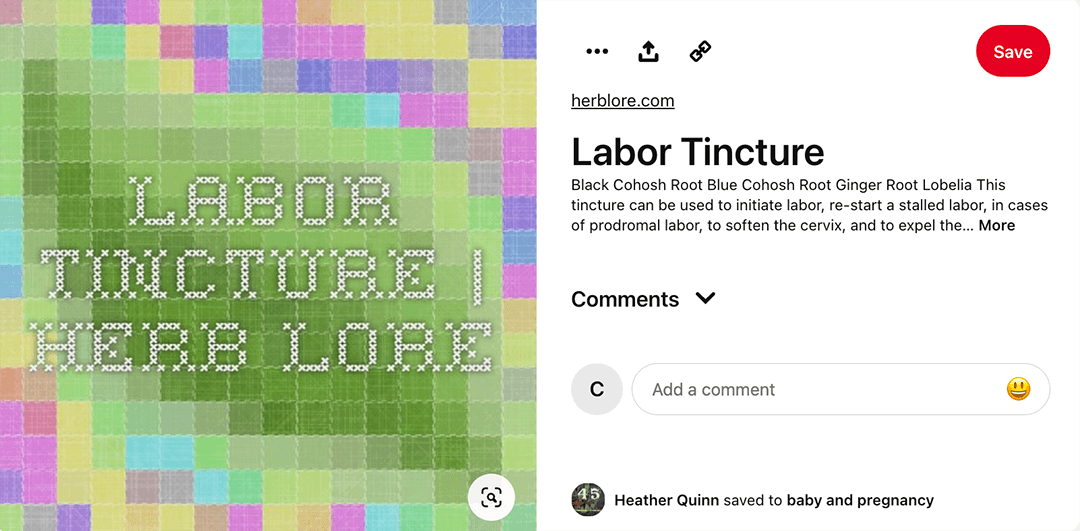
Posts advertising these products on social media often reference their use in traditional medical practices. While this is sometimes true, more scientific testing is needed to determine the possible risks these substances may pose, particularly when self-administered. Actors marketing these products appear to fare best on multimedia-based platforms where they, like freebirth proponents, can display a visually-engaging assortment of products.
